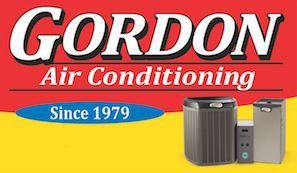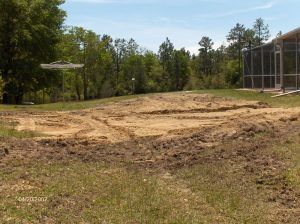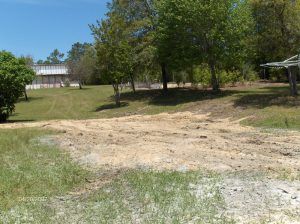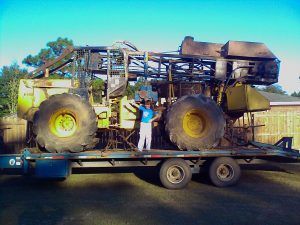GEOTHERMAL HEATING SOLUTIONS
FOR PACE, PENSACOLA, CRESTVIEW, BAKER, NICEVILLE, FL & BEYOND
Geothermal heating is the most advanced comfort system on the market today and Gordon Air Conditioning is proud to offer WaterFurnace® products. Geothermal systems will add value to your home.
WaterFurnace® geothermal heating and cooling moves heat with the Earth’s naturally stored energy. In the warmer months, heat is moved from your residence into the Earth and vice versa in the cooler months. With geothermal heating and cooling, there is not a unit on the outside of your home, making for a more pleasing landscape. All mechanical parts are located inside of your home and a properly installed WaterFurnace® geothermal system normally lasts 25 years versus 12 years for the typical heating and cooling systems available today. The double lifespan of the system is one of the selling points to a geothermal heating and cooling system.
WaterFurnace® geothermal systems rely on the Earth’s naturally stored energy to move heat and is done by the heat put off by the sun year-round. The heat makes the Earth's temperature fairly constant at 69 degrees and the mechanical part of the system makes up the temperature difference for the desired temperature inside your home. This is typically done using a polyethylene pipe and a geothermal service contractor (GSC) normally drills vertically into the Earth approximately 200 feet per ton, one hole per ton. It’s also important to know that there are three main options for installing the Earth loop, including the vertical loop, horizontal loop, and pond loop.
Cost is always a concern for any renovation project or new construction but thanks to the savings on less power alone, the system will pay for itself in as little as four years. Plus, there is also a payback on the equipment replacement cost since the average lifespan of a properly installed WaterFurnace® system is double the lifespan of a normal one. Another advantage to geothermal heating and cooling systems is that they produce as much as 75% of your domestic hot water. There is also less maintenance involved with a properly installed geothermal system since there is no outside unit, making them less prone to failure due to the scorching summer heat. Since a geothermal heating and cooling unit does not rely on outside temperature, there are no defrost controls needed like a typical heat pump.
The advantages to a WaterFurnace® heating and cooling system properly installed by the Gordon Air Conditioning professionals are the following:
● Low operational cost ● Free hot water ● Low humidity in the summer months ● Overall greater comfort ● Low maintenance
● Double life expectancy of equipment ● Quiet operation
GEOTHERMAL FAQS
HOW GEOTHERMAL LOOPS ARE INSTALLED
At Gordon Air Conditioning, we’ve been doing open loop geothermal installations since the early 1980s, but there always seemed to be water problems, whether it was getting rid of the water, wells running dry, or nasty buildup. So, since 1994, we’ve been installing closed-loop geothermal systems and had much better results.
One of the common questions we receive is how the loops are installed. We use specialized, high-quality equipment to drill into the Earth. After the drilling is done, it’s time for excavation, where the loop field is “header up” and brought into the house to connect to the geothermal flow center, which is then connected to the geothermal unit. After the installation process is complete, your yard should be back to its original condition.
Gordon Air Conditioning is proud to be the oldest Lennox® and WaterFurnace® dealer in Okaloosa and Walton counties, including Milton, FL; Pace, FL; Crestview, FL; Baker, FL; Niceville, FL; Valparaiso, FL; Destin, FL; Pensacola, FL; Mary Esther, FL; Shalimar, FL; and Fort Walton Beach, FL.
If you are interested in the benefits of a closed-loop geothermal heating system or to start the installation process, we encourage you to contact us today! We'd be happy to schedule an appointment with you to go over your options and discuss your project in greater detail!
A NOTE FROM THOMAS GORDON
With utility rebates, tax incentives, and media push, there are several companies “green washing” their products and/or trying to reinvent themselves with their green shirts, green business cards, and recycled letterhead.
At Gordon Air Conditioning, much like the country song, we were green before green was cool. Our first geothermal system was installed in 1981. Since then, we’ve stayed consistent as the second to third largest volume dealer for WaterFurnace® in Florida, although we’re the smallest company of the three. Some supposed experts are talking the big talk, but do they have geothermal in their house? Why not? If it’s so great, you would think they have it in their home. We’ve won award after award for doing homes right and putting our money where our mouth is by having geothermal in my last three personal homes, my parents’ home, and my sister’s home. All of the accolades for Gordon Air Conditioning can be seen at our office with case studies.
So why WaterFurnace®? In 1994, I was approached by Gulf Power and WaterFurnace® about offering closed-loop geothermal systems. Gordon Air Conditioning would be the first contractor in the area to offer this system, so I had the opportunity to look at every manufacturer. I found that WaterFurnace® was the best thing going after spending countless hours on the internet (which wasn’t like it is now), on the phone, and talking with the very few contractors offering geothermal.
In 2009, I went to a show for air conditioning and heating. There were 12 geothermal manufacturers there and I walked into each booth asking about their training, product, service, warranty, and pricing. First question, “Tell me about training.” Half of them did not offer any type of training. The other half said I could sell their product if I was a WaterFurnace® dealer. Think about that for a moment. In essence, they were saying if you sell WaterFurnace®, we feel confident that you can sell our product.
Why is that? What I’ve found in the geothermal world is that there is WaterFurnace® and then there’s everyone else. WaterFurnace® is the only major factory-direct manufacturer, so the number I called to order their equipment from is the same number I called about warranty issues, design questions, tech support, training opportunities, and even brochures. I looked at another brand that sounded promising, but they were manufacturer to distributor to contractor and that can make for a nightmare when trying to get tech support or solve warranty issues.
This leads to the WaterFurnace® brand. To my knowledge, WaterFurnace® is the only manufacturer that designs its own equipment and offers a total line of products from units to geolink piping to Earth coupling flow centers to thermostats to filters. Every other manufacturer I’ve looked at offers a unit and it’s up to the contractor to put the rest of the pieces together. Even the loop design software is by WaterFurnace®. I make one call to WaterFurnace® and get the entire system shipped directly to us.
Another major advantage to WaterFurnace® is the training. Some manufacturers offer zero training. But boy, oh boy, they have a great price! I went into a mansion on the south end of the county with some geothermal products that I had never heard of. The homeowner was having comfort problems partially because the installing contractor made some large fundamental errors in the loop design and the equipment looked (and sounded) like a beer can with a compressor in it. The homeowner told me it was cheap, and I said, “Yea, didn’t cost much either.” Unfortunately, geothermal technology took a beating on this home because it looked like he used a sprinkler guy with the cheapest junk out there.
So, in a nutshell, there’s a thin line between bragging and simply being confident. We’ve worked hard to couple the most award-winning air conditioning contractor in the southeast USA with the best manufacturer. As of this writing, we’re the only company offering factory-direct equipment with all the certifications and track records to prove we’re the place to go for geothermal heating and cooling.

















